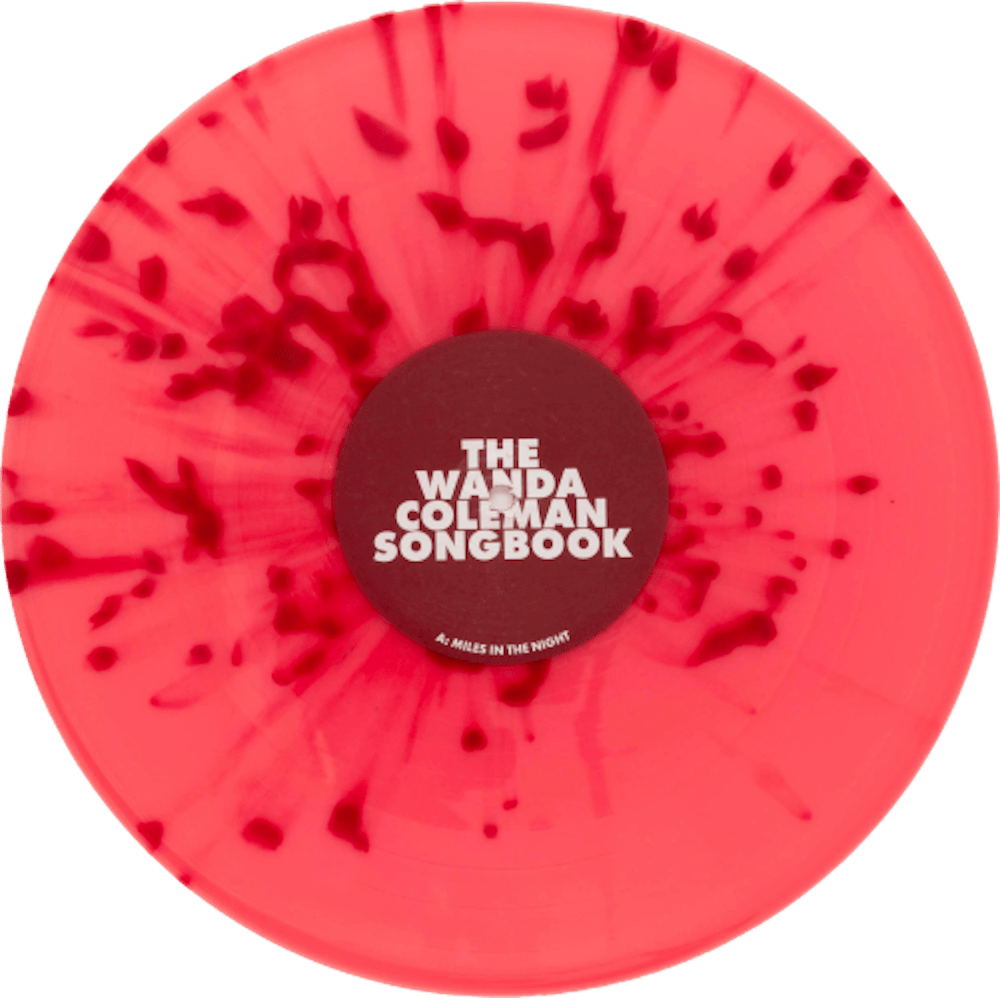No matter the medium, art is known to be a creative manifestation of primitive ideas, revelations, feelings and memories. When it comes to heritage and history however, for Black Americans, art also has the potential to be a stainlessly surreal encounter with divine power. The Wanda Coleman Songbook, created and produced by interdisciplinary artist Cauleen Smith, is that kind of encounter, sonically emoting the poetics of Wanda Coleman (1946-2013) as praise songs and prayers. Limited to 500 vinyl pressings, Songbook is a musically driven compilation of select Coleman poems interpreted by an array of artists and musicians, and the inspiration behind 52 Walker’s multi-sensory installation and immersive listening experience, Cauleen Smith: The Wanda Coleman Songbook (closed March 16, 2024).
Born Wanda Evans on November 13th in LA's Watts neighborhood, she is a griot of generations that survived poverty, prejudice, Black feminine malaise, and abuse. Married with two children at 20 years old, Wanda had been an avid reader all her life and a natural force in poetry and performance art. She authored twenty books of poetry and prose, edited the first six issues of Players magazine, and won an Emmy as part of the writer’s room on the soap opera Days of Our Lives. But this was the work of a woman who, on the side, waited tables and worked other temp jobs to make ends meet. Frustrated with the plight of Los Angeles’ Black women, herself included, Coleman’s Bluesy Jazz-infused poetry projected the LA woman’s love-hate relationship with the city making her the west coast’s womanist pulse of poetry. In Cauleen’s own words, “Most poets know Wanda's work well. She's a poet's poet. But what she isn't, is quotable.” She continues, “she's not widely popular in a pop culture kind of way… but I wouldn't say she's just a local poet. She was pretty much an international phenomenon.”
With A and B sides featuring commissioned contributions by Kelsey Lu, Jeff Parker and Ruby Parker, Standing on the Corner and more, the EP's opener is a gentle rapture performed by Alice Smith. In a refrain centered on eternal life fed by the bliss of love, Smith incants her own interpretation of Coleman’s original poem “In That Other Fantasy Where We Live Forever.” For her rendition titled “ALICE SMITH REBELS,” she centers the profound youthfulness of carefree rebellion. What is likely to raise the hair on your arms, is the B side opener “SATURDAY AFTERNOON BLUES.” With a melancholic serve to savor, recording artist and musician Meshell Ndegeocello fatalistically echoes, “can kill,” the opening line of this piece by Coleman in which she declares herself “a candidate for the coroner.” It’s difficult to do anything but empathize with and/or personally recollect the lovesick despair behind romantic degradation and neglect. At just over 32mins, ‘Songbook’ closes with a five-minute meditation guided by Wanda’s spirit — though the typewriter soundtrack, I learned, is actually Cauleen’s own sonic offering dedicated to the “LA’s Blueswoman.” It’s peaceful, and gorgeously intoxicating, and altogether akin to a hymnal for Black women. These are the psalms of Coleman’s faith in poetry to lift the veil of allusiveness and directly confront the personal and political tenors of feminine Black-American life. Cauleen Smith summons that ancestral faith in Songbook, where communion is meditation with the reverberating lore of the gospel according to our foremothers; in this case, the indomitable Wanda Coleman.





